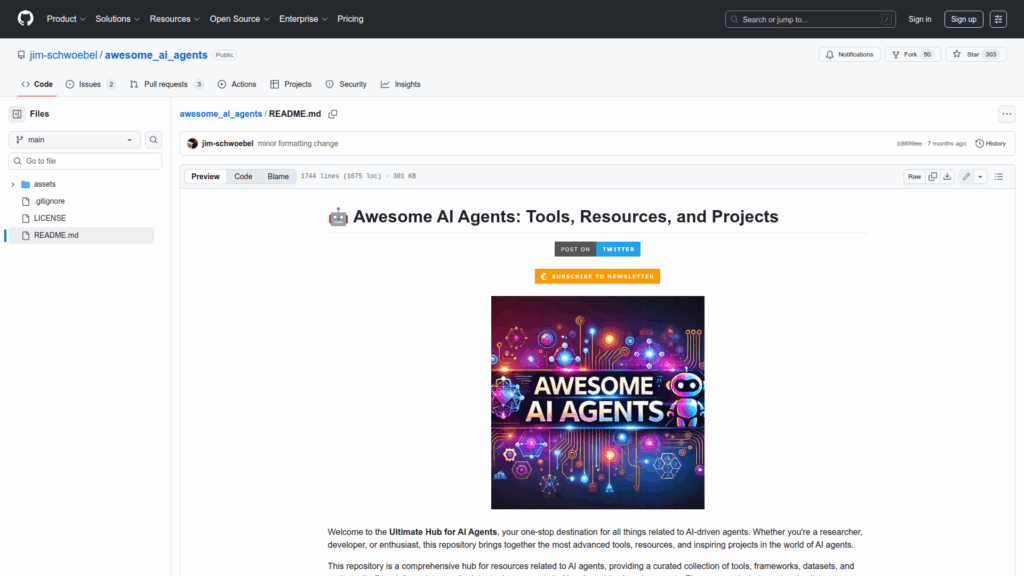awesome_ai_agents
Basic Information
This repository is a curated, community-maintained hub that collects and organizes hundreds to thousands of AI agent resources in one place. It is designed as a discovery index for people interested in autonomous and agentic systems, aggregating frameworks, agent projects, benchmarks, datasets, LLM models, prompt engineering material, tools, deployment examples, courses, ethics and security references, testing and workflow integrations. The README groups content into clear sections for using, learning, building and deploying agents and highlights practical examples, popular projects and how to contribute. The collection is updated frequently and aims to help researchers, engineers and enthusiasts find working agents, libraries, tutorials and infrastructure components needed to evaluate, construct and run agent-driven applications.








